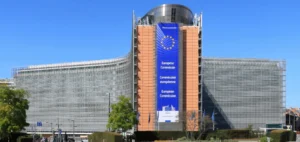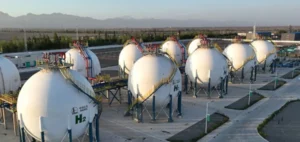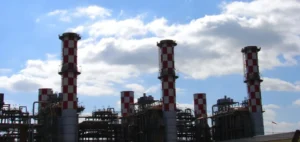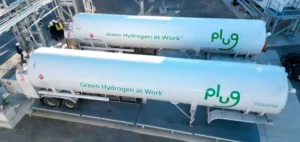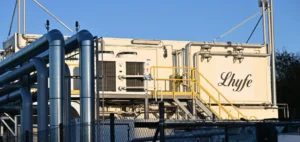Saudi Arabia is banking on strategic alliances in Europe to support its ambition to become a major supplier of green hydrogen.
Saudi Arabia’s Minister of Investment, Khalid Al-Falih, says Italy is a key partner in bringing these products to the European market, against a backdrop of strong demand for lower-carbon energy solutions.
The collaboration is part of the kingdom’s energy diversification strategy, which seeks to reduce its dependence on oil and gas.
A Strategy Based on Green and Blue Hydrogen
In an effort to diversify its energy mix, Saudi Arabia is developing production capacity for green hydrogen, obtained by electrolysis of water from renewable energies, and blue hydrogen, produced from natural gas with CO2 capture and storage.
The hydrogen market is still in its infancy, but there is significant growth potential, particularly in Europe, where demand for cleaner energy solutions is growing.
Saudi Arabia is positioning itself as a key supplier to meet this growing demand.
Al-Falih stresses that investment in infrastructure, including ports and pipelines, is needed to ensure the delivery of green hydrogen to Europe.
This could include partnerships with other European countries, such as Germany, to establish a strong, integrated distribution network for these new energy products.
Italy’s strategic role in Europe
Italy stands out as a strategic player in facilitating access for Saudi energy products to the European market.
In May, Italy signed an agreement with Germany and Austria to develop a pipeline to transport hydrogen from the Mediterranean to northern Europe.
This agreement is in line with the European Union’s target of producing and importing 20 million tonnes of green hydrogen by 2030 to replace fossil fuels.
Cooperation between Italy and Saudi Arabia would accelerate the development of the infrastructure needed to support these ambitions, while strengthening Europe’s security of energy supply.
For Italy, playing the role of energy hub for hydrogen could strengthen its position on the European energy scene.
Hydrogen Export Perspectives and Challenges
While demand for green hydrogen is on the rise, setting up an efficient supply chain in Europe requires substantial investment in transport and storage infrastructures.
Saudi Arabia, in partnership with Italy and potentially other European countries, is looking into ways of cooperating to develop suitable logistics solutions.
The success of this approach will also depend on European energy policies, which could influence the competitiveness of Saudi hydrogen exports.
Italy, with its geographical position and infrastructure, could play a pivotal role in facilitating the transport of hydrogen to European markets.
However, questions remain over production costs and the regulatory frameworks needed to support this energy transition.
Impact on the European energy market
The Saudi initiative, supported by bilateral agreements with countries such as Italy, aims to seize the opportunity offered by Europe’s energy transition.
With investments in port and pipeline infrastructure, Saudi Arabia anticipates stable demand for its low-carbon products.
The European Union’s commitment to decarbonizing its energy systems could strengthen cooperation between European and Saudi players, despite cost and regulatory challenges.
Ongoing partnerships could enable Europe to diversify its sources of energy supply while supporting its goal of carbon neutrality.
This dynamic opens the way to new business opportunities, while underlining the importance of coherent policies to accompany these changes.














